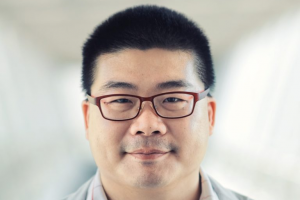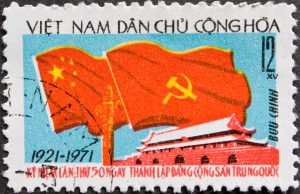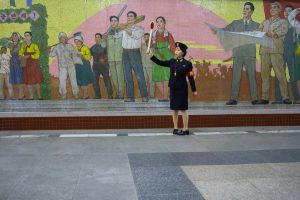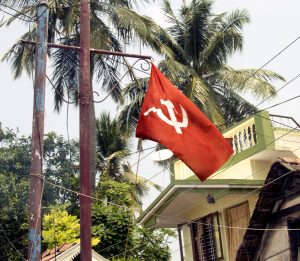Featuring A Success Story (FASS) – HSS Faculty Research Fellowship (HSS FRF)
January 27, 2022
The HSS Faculty Research Fellowship (HSS FRF) provides release from teaching and administrative duties for one semester. The award may be held in either semester one or two, for work in Singapore or overseas. The fellowship is open to full-time NUS faculty members on tenure track. Preference will be given to junior and mid-career scholars with heavy teaching loads and who propose to complete book manuscripts or large-scale field work. The annual call for applications closes on 1 March 2022. Learn more about the fellowship here.
 Associate Professor Chong Ja Ian (NUS Department of Political Science) recently spoke to us about his fellowship undertaken in 2016 and 2017 and how it helped him pursue his research goals. A/P Ian Chong’s fellowship study, “Buying Out, Cashing In: Non-Leading States, Aggregated Reactions, and the Problems of Power Transition” examined the aggregation of non-leading state responses to power transition between the Asia-Pacific from the end of the Cold War to the present. The project developed a conceptual framework to understand the aggregated effects of non-leading state reactions to power transition and their consequences for the leading states. It also tested and refined this conceptual framework by looking more closely at developments in the Asia-Pacific since the end of the Cold War.
Associate Professor Chong Ja Ian (NUS Department of Political Science) recently spoke to us about his fellowship undertaken in 2016 and 2017 and how it helped him pursue his research goals. A/P Ian Chong’s fellowship study, “Buying Out, Cashing In: Non-Leading States, Aggregated Reactions, and the Problems of Power Transition” examined the aggregation of non-leading state responses to power transition between the Asia-Pacific from the end of the Cold War to the present. The project developed a conceptual framework to understand the aggregated effects of non-leading state reactions to power transition and their consequences for the leading states. It also tested and refined this conceptual framework by looking more closely at developments in the Asia-Pacific since the end of the Cold War.
How did the fellowship help you gain the necessary time to enable you to achieve the writing outcomes you envisioned?

The key with the HSS Faculty Research Fellowship is time. Many grants provide funding, which is important. However, my work is not one where I can buy time with money, such as through the hiring of research assistants. I need to spend time reading, writing, conducting interviews, looking for sources, and conducting fieldwork. Hence, having protected research time is invaluable. That was a key attraction of the grant. Unfortunately, reservist duties meant I was unable to fully make use of the time the fellowship provided.
How did your project, “Buying Out, Cashing In: Non-Leading States, Aggregated Reactions, and the Problems of Power Transition”, open pathways to future studies and/or collaborations?
My project looked at how small and middle powers respond to major power rivalry and how such responses collectively shaped environmental conditions that constrain or incentivize major power assertiveness. I look specifically at East Asia in the contemporary period and at different

phases of the Cold War. Examining responses to major power competition by smaller and middle powers made me consider more carefully how these actors respond to direct and indirect threats, which resulted in three different papers. The first seeks to explain why some states preemptively comply with expected major power demands more and others less when they see third parties getting punished by major powers—this explores and tests claims about the “killing the chickens to scare the monkeys” dynamic often attributed to Chinese foreign policy. Two more spin-offs look at when and why weaker actors are resistant to pressure and threats by more powerful actors. Here, I look at Taiwan’s responses to growing threats from an increasingly capable China.
What do you think were the strengths of your fellowship application that led to it being funded?
I think I had a clear research question and approach, which made the application executable.

Did you face any challenges carrying out the fellowship? If so, what did you do to overcome those challenges?
The real challenge was that I had an extended reservist call-up in the middle of the fellowship. It was very disruptive for me since it broke up the fellowship time and made it difficult to get momentum. I used the time I had to do what I could on the project.
What do you think the HSS Faculty Research Fellowship enabled you to achieve that you would not have been able to do without it?
I managed to get some publications out of the fellowship, in spite of the disruption. Having some protected research time is better than not having any. Time for research is a resource whose importance is often underestimated.
What do you think you would have done differently if you could start all over again?
I would still go for the fellowship. If there wasn’t the disruption I could not control, I am sure I would have done more.
Thank you very much for sharing your experiences with the HSS Fellowship, Ian! We wish you the best in your current and future research projects!
For more HSS Fellowship Success Stories, check out the following:
For Tier 1 Success Stories, check out the following:
- Associate Professor Jinping Wang’s “A Cultural History of Quanzhen Daoism in Thirteenth-Century North China”
- Assistant Professor Alex Mitchell’s “Exploring ‘Literary’ Devices for Poetic Interactivity” and “Understanding Repeat Engagement with Dynamically Changing Computational Media”
- Assistant Professor Juwon Seo’s “Randomization Tests of Copula Symmetry” and related papers
Stay tuned for forthcoming features on FASS Book Grant Awardees!

